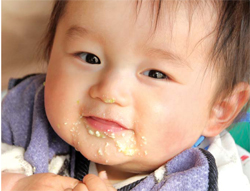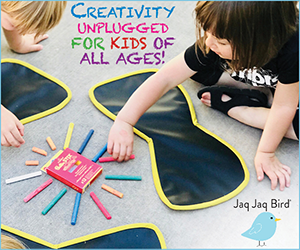Feeding Your Baby: Starting Solids

“Exclusive breastfeeding for six months is the optimal way of feeding infants. Thereafter infants should receive complementary foods with continued breastfeeding up to two years of age or beyond.” – World Health Organization
MYTH
Starting solids as soon as possible (as early as three months) will help my baby sleep through the night.
FACT
Starting solids before your baby is ready can lead to disrupted sleep caused by irritability to your baby’s immature digestive system. Waiting until your baby is six months old to introduce solids will help to minimize the risk of allergies and adverse reactions to certain foods, as well as protect your baby against gastrointestinal infections.
At six months of age a full term baby may not be getting all the nutrients that he needs from breastmilk alone, especially iron, zinc, and vitamin A. If your baby is ready, then this is an ideal time to introduce solid foods (although at this stage the food that you will be feeding your baby is nowhere near solid). Start by feeding your baby one or two teaspoons once a day. Gradually move up to twice a day until you are at three meals a day, and after your baby is a year old, he should be having three meals a day, two snacks, and a maximum of 24 oz of milk per day. Remember that the most important part of your baby’s diet at this stage is milk — whether it is breast milk or formula. The ‘solid’ food is mostly to help your baby learn how to eat. Allow your baby to try foods with a variety of tastes and textures. This will help your baby learn how to handle food in her mouth and to be open to different flavours.
Introduce each new food slowly so that you can monitor your baby for allergic reactions and intolerances. Depending on your own comfort level and the advice from your pediatrician, it is good to give your baby a new food exclusively for three days to one week before you introduce a new one. Once your baby is eating solids, you can give her cooled boiled water. Introduce it to her in a sippy cup or feeding cup, not a bottle. This will help you to wean your baby from her bottle a little easier at a later date. You can also introduce
unsweetened juice diluted with boiled water if you like. It’s not necessary to do this, unless your baby is a vegetarian, as your child will likely develop a taste for juice as a toddler. But if you do, make sure that it is 100% real juice and diluted about 10 parts water to one part juice.
Your baby is ready for solids when:
• She is a healthy weight — your baby should have doubled her birth weight by the time she is six months old.
• He shows interest in what you are eating.
• She can hold her head up.
• He can sit up with little if any support
• She makes chewing motions. She should be able to “gum” her food and move food to the back of her mouth for swallowing.
• He opens his mouth when offered food.
• She turns her head away when she doesn’t want to eat.
What you need to start solids:
There are so many baby feeding products available to the keen parent. The only things that you really need are a soft rubber tipped spoon, and a lot of patience. You, your baby and your kitchen will most likely be covered in food after a feeding. Don’t stress about it, this is all a part of your baby growing up and hitting a major milestone. It’s only food after all! Don’t stress if your baby does not want to eat a specific food. Respect what he likes and dislikes.
Signs of Allergy
• Vomiting
• Rash
• Diarrhea
• Breathing problems
If your baby is experiencing any of the above, stop feeding her right away and consult your pediatrician. If your baby is experiencing breathing problems call 911 right away.
First Foods that are rich in iron:
• Iron fortified infant cereal — rice, barley or oatmeal
• Well-cooked meat & poultry
• Tofu
• Cooked egg yolk
• Well-cooked legumes
Finger foods can be introduced from seven to nine months. Here are some examples of very common first finger foods:
• Bread
• Bananas
• Melon
• Well-cooked carrots
• Sweet potato
• Cheerios
• Baby pasta
There really is no reason to introduce vegetables before fruits. It is commonly said that if you introduce a sweet fruit before a vegetable, the baby will develop a taste for sweet and reject the not so sweet food. If you look at this logically, this can’t possibly be true, as breast
milk is much sweeter than most fruits and vegetables.
Starting solids can be scary. Will your baby have an allergy? Will he choke? Will he get enough nutrients? It certainly involves more work than breastfeeding alone. But try to make it enjoyable for all. Watch your baby explore new tastes through new foods. Follow your baby’s cues. He will guide you and let you know when he is hungry and when he is full.



